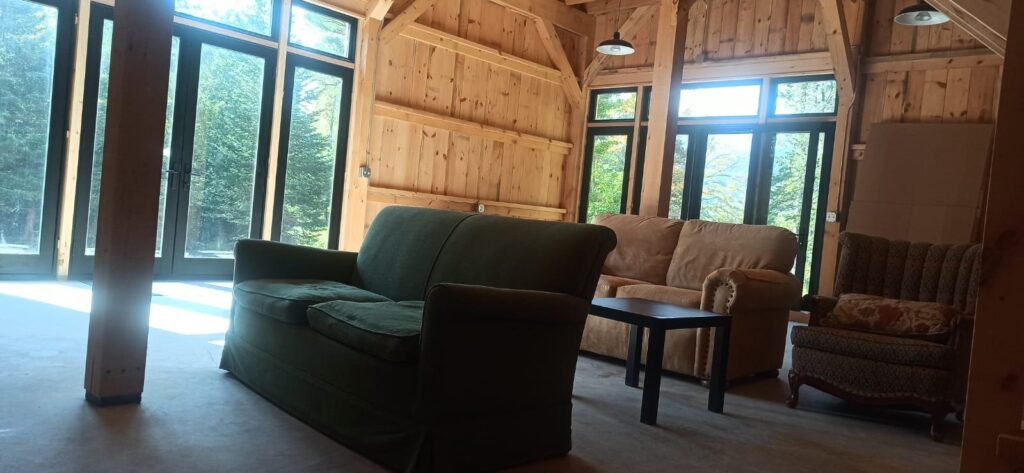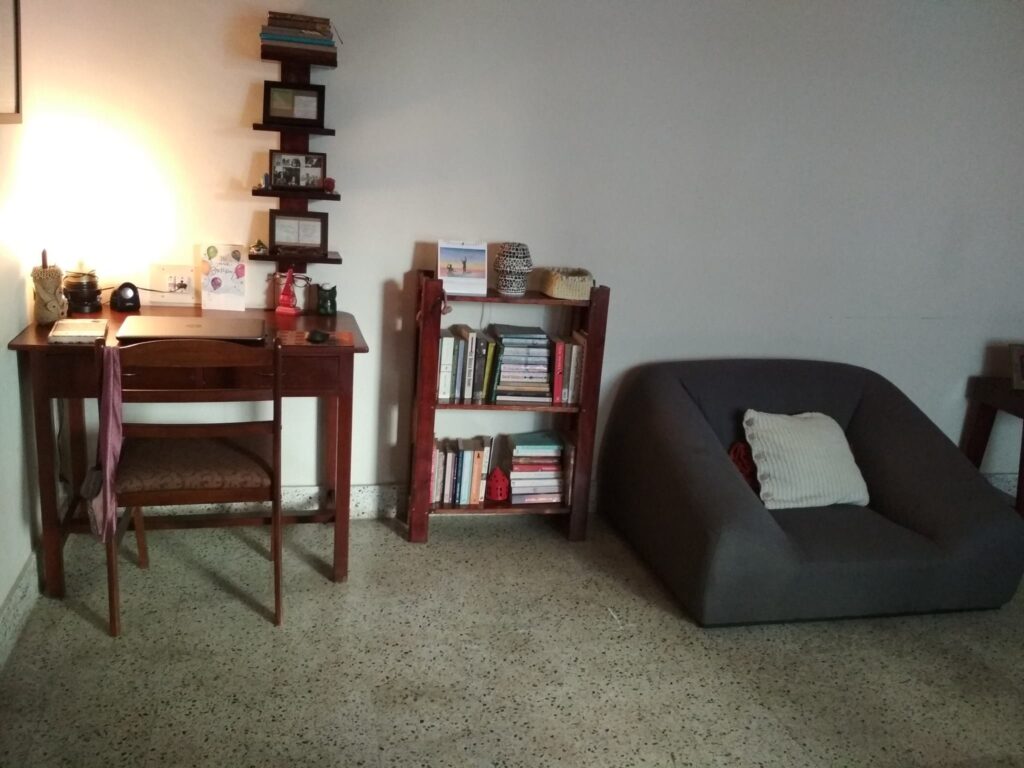Joy v/s Happiness: How I Tell Them Apart
For as long as I have lived, I have lived in a near constant state of enamor of those who find it easy to say what they want to say. To be able to connect words into a coherent stream of thought that defies no linguistic logic but sometimes does so charmingly, that is neither insulting nor controversial, that honors every single rule of the conversation rulebook, that leaves a tiny crack of a back to its frank forth open, that invites the person in front of you to engage in an exchange of perspectives, that leads to a freewheeling tete-a-tete that is the very foundation of the connectedness of the human race as we know it, is a skillset I will likely not have in this lifetime. I am someone with a known penchant to say the wrong thing all the time: the shy girl in me finds conversation difficult. I know all the words, all the clauses, where all the punctuation should go, the little parenthetical insertion that neither takes away from the thought nor leaves it bare naked weren’t it to exist, all the logical elements that lie in the expanse of that thought in my head, but ask me to say that out loud while I am still thinking it, and I will either mess up the syntax, mispronounce words, insult someone, say something wholly unintentionally insensitive, stutter and stumble and somnambulate, want the earth to swallow me whole the next instant, and heave the hugest internal sigh of relief after I have said what I really didn’t mean or want to say in the first place.
For this very reason, for the longest time, for at least 3/4s of my lived life, and possibly even now, I still falter when speaking. This is why English teachers have been my chosen tribe. The difference is that I no longer view this as a shortcoming; just as a character quirk, one that doesn’t define, but is definitive, of me. I have worked through long decades of muteness and silence when I still hadn’t yet found my voice, and didn’t know quite what to say to people, even those known to me. So, you can well imagine how vocal I am in front of strangers and new acquaintances.
I have received all the advice you can receive as a shy person from those extroverted and more at ease with themselves and those around them, you know, the talk-is-easy-there’s-nothing-to-it brigade: practice in front of the mirror, ask questions, be yourself (didn’t help), imagine people naked (doesn’t help either because if the person you are imagining naked is someone you are attracted to, words usually don’t follow). It is an exercise in self-restraint, that much I’ll say. Particularly when you are trying to wax eloquent in front of top executives in a corporate board room. Let’s stow that away for another day and stay with my original stream of thought for now, because as we all know by now, I have an affinity for segues.
Of all the advice I was given, none worked as well as this: writing my words down and reading them aloud, over and over again, in the privacy of my own space, and falling in love with the linguistic choices I made – diction, breaks, cadence, lyricism, all the alliteration and assonance I had introduced without intending to, and finding a little gift of a rhyme or incantation where none existed when I first wrote that line or sentence out. This love is abiding: the one for a sentence that runs free and wild within the structures of grammar and syntax, sometimes defying them, playing with punctuation like a siren would a sailor whose thirst needs slaking, leading my soul to a place that is free of my body, running wild in the fields of imagination as those words come together in a scrolling marquee of the most beautiful sentence ever written in the history of sentences. This happens frequently enough that I cheat between sentences on a daily basis, but who cares? All I know is that the sentence was my first love, is my one true love, and will be my eternal love, seeing me through to the end of this mortal coil, to borrow from the Bard. I chose words, and words have now chosen me back. As simple as that.
Last week was my first ever public reading at Craigardan, and even though I had given a reading during my MFA, with my heart hammering in my throat, this wasn’t as nerve-wracking as the MFA one was. I attribute this to several reasons: I rehearsed. This was a piece that was familiar to me that I didn’t need to perform it, or embellish it for an audience. This was personal. And most importantly, it was in front of an intimate group of people who were strangers only a week ago, but are now friends. I also made the wise decision to choose this shorter piece over one of the short stories that would have been thrice-as-long as this. You will have read this on my blog here, and some of you, the earliest version of this on Facebook. I think this helped my anxiety settle, knowing that I wouldn’t have to speak for more than a few minutes in front of this lovely gathering, with the late summer sun streaming in through the doors of the Apple Barn, a high-ceilinged artist sanctuary that hosts the barn talks here at Craigardan. There is so much rich history here in this garden of rocks that even grasshoppers and bees buzz around to tell me about it.
I write this as I begin week two here in the Apple Barn, with a flannel throw over my legs, because fall is here, and the sun’s hibernating and there’s a chill in the air that lingers even mid afternoon. The couches and wingbacks here are a hat tip to the colours of the season that’s just arrived. Leaves are turning, tops of the trees changing colour in just a matter of days, mercury’s dipped and dipping further still, Luca Morelli’s The First Autumn Leaf is playing on loop through my earphones, and in just this span of two weeks, I get to experience two full seasons of the creative life: of being born again, of generating new pages, of revising old ones, of going back to forgotten or abandoned pages, of rekindling the fire of personal aspiration, of meeting new people and making connections, the kind that sustains me, of finding out that my voice isn’t so jarring after all the years of self-judgement.
When I finished my talk, a young artiste, who has the courage and the conviction to chase art itself as a life goal, not restricting themselves to one art form, asked me how I would define joy. I hadn’t yet defined it to myself, and had to figure it out on the fly, and you know by now how doing things on the fly speaks to me. I went into that place in my head where I’m not constructing a response, choosing instead to answer from a place that is not at odds with who I am at my core. I said joy is something that sustains, that lingers. Vis-à-vis happiness, which was the follow-up question, to which I said happiness comes in bursts and spurts, whereas joy quietly endures. I made it up. But there was no ooh or a-ha factor in it. Joy, I said, is that feeling of knowing you are not removed from yourself. A feeling of oneness with the self, of being whole and seen and witnessed as you are, and being accepted that way without being expected to accommodate someone else’s idea of you. Happiness is just one moment in that expanse of joy.
Joy is a swing, happiness a trampoline. Joy needs just one forceful leap of faith to get you into its trajectory, happiness needs constant kinetic energy. Joy is carried by the wind, happiness by self-propulsion. Joy endures; happiness is transitory. Joy sustains you; happiness is but a morsel every now and then. Joy is what you feel; happiness, what you show. Joy is water; happiness, bread. Joy needs no fanfare; happiness, all the drumroll and confetti. Joy is on the inside, happiness on the outside.
Joy is a quiet place, a babbling brook, flowing to its own rhythm; happiness, a trendy shindig, all pomposity and splendour. And without meaning to take away from the conversationalists in any way, while at the risk of doing so, I think I’ve arrived at my best definition of joy v/s happiness. Joy is writing; happiness, conversation.
As I finish this essay, another shaft of sunlight sneaks in from the door to the Apple Barn, warming my being from the early morning chill into a place of coziness, of settling into another few hours of the joy of saying what I want to say, the way I want to say it. And Morelli’s sublime piano keeps me company all the way through, from the first word to the last.
Joy is disappearing into myself the only way I know how.



